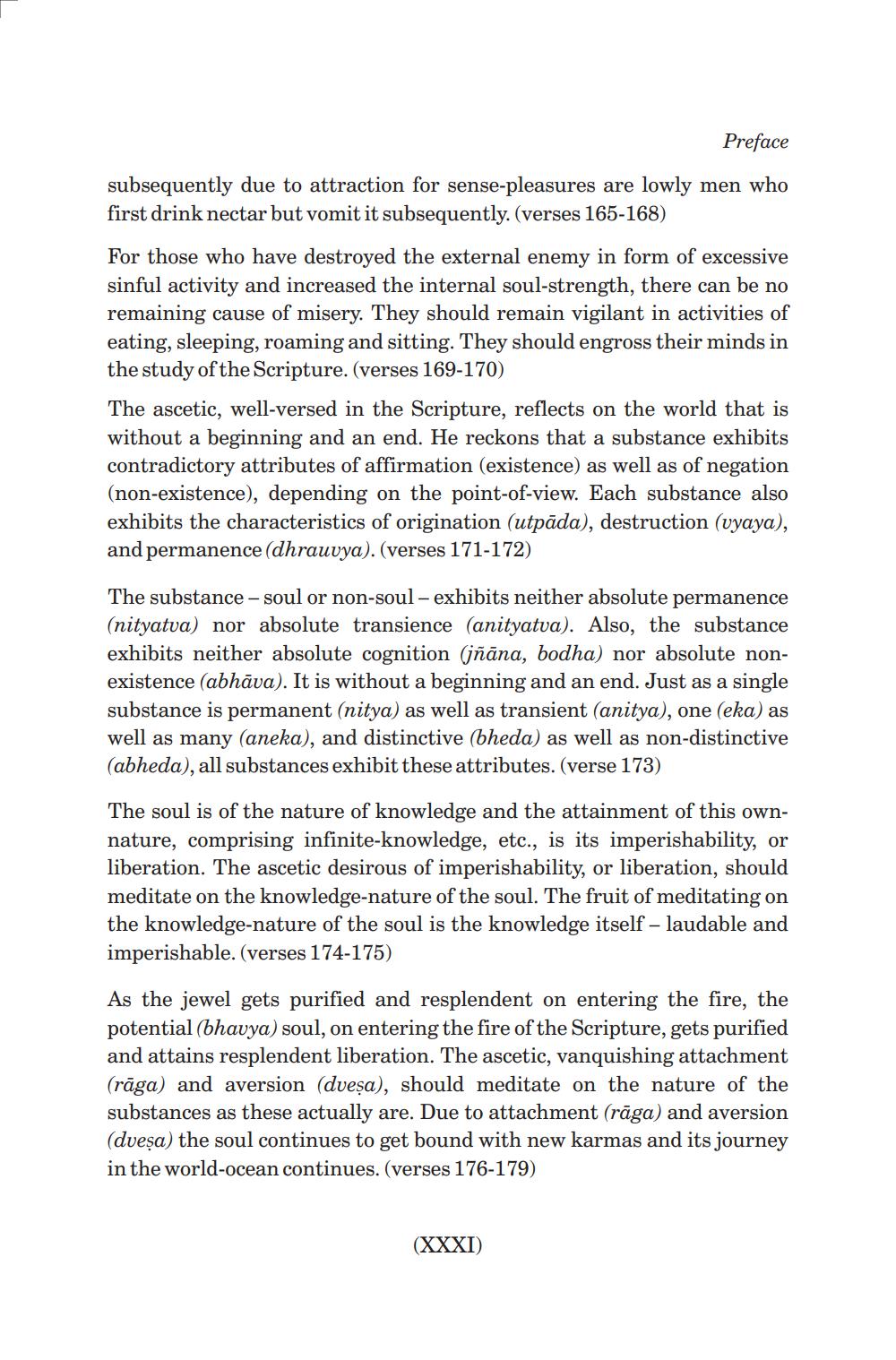________________
Preface
subsequently due to attraction for sense-pleasures are lowly men who first drink nectar but vomit it subsequently. (verses 165-168)
For those who have destroyed the external enemy in form of excessive sinful activity and increased the internal soul-strength, there can be no remaining cause of misery. They should remain vigilant in activities of eating, sleeping, roaming and sitting. They should engross their minds in the study of the Scripture. (verses 169-170)
The ascetic, well-versed in the Scripture, reflects on the world that is without a beginning and an end. He reckons that a substance exhibits contradictory attributes of affirmation (existence) as well as of negation (non-existence), depending on the point-of-view. Each substance also exhibits the characteristics of origination (utpada), destruction (vyaya), and permanence (dhrauvya). (verses 171-172)
The substance - soul or non-soul- exhibits neither absolute permanence (nityatva) nor absolute transience (anityatva). Also, the substance exhibits neither absolute cognition (jñāna, bodha) nor absolute nonexistence (abhāva). It is without a beginning and an end. Just as a single substance is permanent (nitya) as well as transient (anitya), one (eka) as well as many (aneka), and distinctive (bheda) as well as non-distinctive (abheda), all substances exhibit these attributes. (verse 173)
The soul is of the nature of knowledge and the attainment of this ownnature, comprising infinite-knowledge, etc., is its imperishability, or liberation. The ascetic desirous of imperishability, or liberation, should meditate on the knowledge-nature of the soul. The fruit of meditating on the knowledge-nature of the soul is the knowledge itself - laudable and imperishable. (verses 174-175)
As the jewel gets purified and resplendent on entering the fire, the potential (bhavya) soul, on entering the fire of the Scripture, gets purified and attains resplendent liberation. The ascetic, vanquishing attachment (rāga) and aversion (dveṣa), should meditate on the nature of the substances as these actually are. Due to attachment (rāga) and aversion (dveṣa) the soul continues to get bound with new karmas and its journey in the world-ocean continues. (verses 176-179)
(XXXI)




